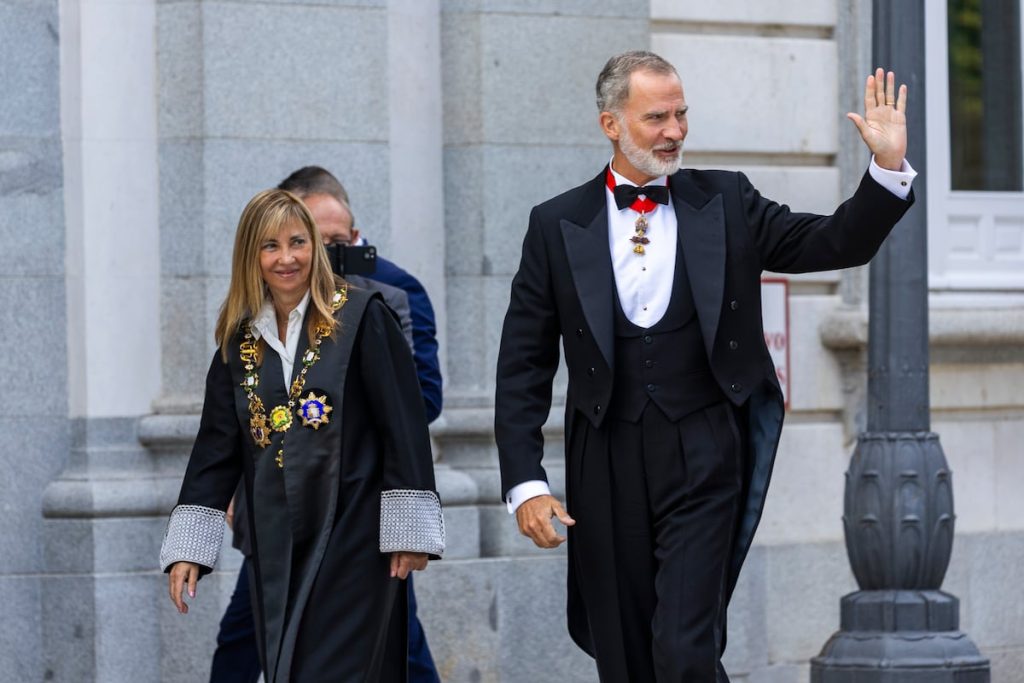The opening ceremony of the courts this time was very different from previous years. There was a sense of general relief. The justice system has finally overcome its lack of renewal, which was more than five years overdue. However, the new president of the Supreme Court and the General Council of the Judiciary (CGPJ), Isabel Perelló, will face problems as the relationships between the branches of government remain turbulent. The main topic of discussion at the reception after the speeches was the amnesty law and the conflicts it may continue to cause. There were rumors that the Supreme Court will soon respond to Puigdemont’s appeal against the non-application of the law in his case. This will be a first step for him to seek protection from the Constitutional Court, which will hold its first plenary session on the matter next Tuesday. The Constitutional Court will be the stage for the decisive legal battle when it decides whether or not the law is consistent with the Constitution.
The President of the Constitutional Court, Cándido Conde-Pumpido, was repeatedly asked about the timetable for a resolution, which is expected to take between six months and a year. The focus of the upcoming deliberation will be on admitting the constitutional issue raised by the Supreme Court, which believes that the amnesty law violates the right to equality. The initiative of the Penal Chamber will be accepted, but it will involve a first debate that the judges themselves describe as contentious, regarding possible abstentions or recusals. Former Justice Minister Juan Carlos Campo, who played a key role in the management of pardons, has confirmed his abstention. Despite this, José María Macías, who criticized the law while serving as a judicial member, will not abstain, according to sources at the Constitutional Court, even though the government had hoped he would.
According to the distribution rules, it is Macías who will be responsible for preparing the presentation of the appeal filed yesterday by the PP against the Amnesty Law. It will be his proposal regarding the admissibility of the challenge by the conservatives, whose president, Alberto Núñez Feijóo, was present at the Supreme Court ceremony, satisfied – at least for the moment – with the outcome of the negotiations that influenced the initial proposals of the progressive bloc, redirecting them toward Isabel Perelló, who comes from the same ideological background but is known for her inclination towards negotiated solutions. The focus in the judicial world now shifts to the numerous positions that need to be filled, over a hundred in total, with almost thirty in the Supreme Court. Many judges have been waiting for years to advance in their careers. Have the conflicts ended? Not at all. There were speculations that the Attorney General, Álvaro García Ortiz, could soon be implicated for the information disclosed about the case involving Ayuso’s partner. The general consensus was that the storm will not engulf the Attorney General.
The most concerning issues are the ones closer to home. To stay informed, subscribe now.


